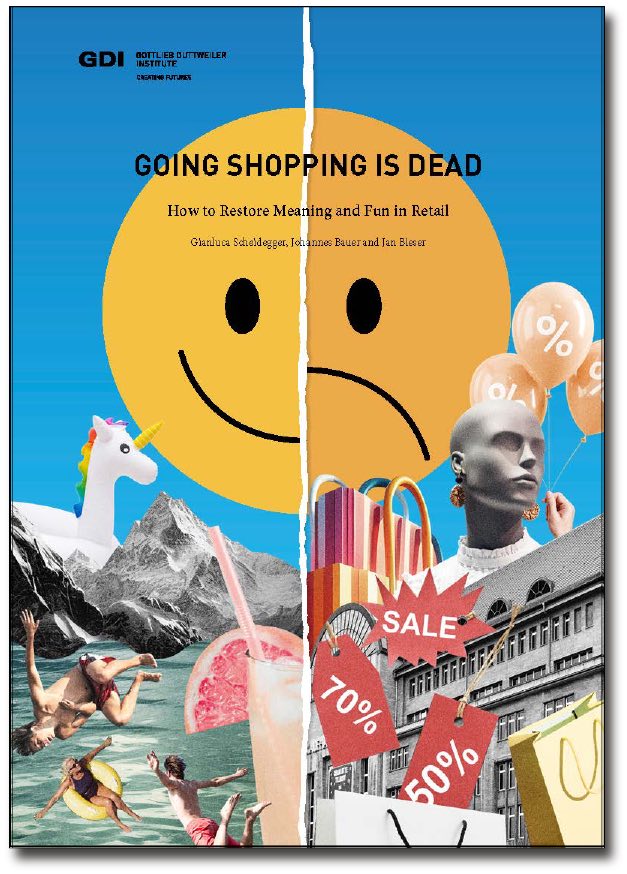Going Shopping is Dead
How to Restore Meaning and Fun in Retail
Authors: Gianluca Scheidegger, Johannes Bauer and Jan Bieser
GDI Study No 53
Languages: English, German
2023
Representative study on Swiss retail
After supply chain bottlenecks, rising commodity prices and a shortage of skilled labour, another factor is now presenting retailers with a major challenge: time. It is becoming a critical resource when making consumer decisions. 30% of all Swiss people of working age are often or almost always under time pressure. Consumers want to spend less and less of their valuable time shopping.
The results of the GDI's new retail study "Going Shopping" is Dead indicate that attitudes towards shopping have changed. It is no longer perceived as a pleasant leisure activity, but as a "tedious activity".
Four shopper types
The different attitudes to shopping are illustrated in the study with four shopper types: aimless dawdlers, strict needs shoppers, open-minded optimisers and efficient identity shoppers.
Four ways out of the fun and meaning crisis for retailers
To make shopping more attractive for customers again, retailers must adhere to four Ps, according to the GDI researchers: It must become faster (promptness), closer (proximity), more beautiful (pleasure) and more meaningful (purpose). Retailers must give people back their time and become time organisers for their customers.
English: http://doi.org/10.59986/SLZW6153
German: http://doi.org/10.59986/ECYW5885
The authors

Dr Gianluca Scheidegger
Dr Gianluca Scheidegger is a senior researcher and speaker at the Gottlieb Duttweiler Institute. He holds a doctorate in economics and analyses social, economic and technological changes with a focus on retail and consumer behaviour.

Dr Johannes C. Bauer
Dr Johannes C. Bauer is Head Think Tank at the Gottlieb Duttweiler Institute. In his research, he examines changes in consumer and purchasing behaviour, the future of retail against the backdrop of long-term consumer, technology and business model trends as well as the opportunities and risks of digitalisation for the economy and society.

